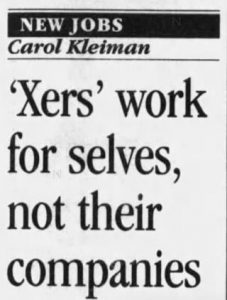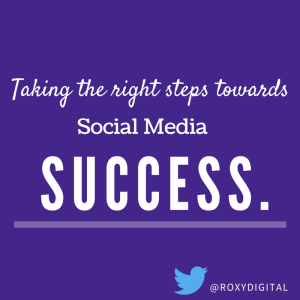Sports make up a tremendous part of the American psyche. According to the Aspen Institute’s State of Play 2023 report, 51% of U.S. children participate in youth sports. And nearly 160 million Americans watched live sports at least once per month last year. Inarguably, sports—whether played or followed—have become an innate pastime that inspires fans and encourages friendly competition across the nation.
The competitive mindset associated with sports doesn’t have to be left on the court (or field). In fact, it can be encouraged when applied to business. Indeed, friendly competition is arguably what drives brands forward to garner the best results—whether derived from a hunger to be the most innovative, or to have the happiest clients and stakeholders.
As a hobby, I am an amateur boxer. And, although my corporate office job has a stark physical contrast to the gritty underground boxing gym I’m used to training in daily, I have found that both experiences help me improve in the other.
Here are four lessons sports have taught me that can be applied to business and can help workers propel ahead in their careers.
Lesson #1: Don’t underestimate the power of habit
I started boxing with the goal of competing when I was 31 years old. It could have been easy to compare myself with anyone in the gym who had the benefit of participating in the sport their entire lives and fall into a scarcity mindset.
However, instead of being overwhelmed by the amount I needed to learn in the long run, I surrounded myself with a supportive team, coach, and sparring partners. I controlled what I could control and trained six days a week, for months. I allowed my curiosity to guide me and sooner than later, I began to see the compound effect of showing up—even on days I really didn’t feel like it or couldn’t put my best foot forward.
The same mindset applies to work. What is it that you want to learn more about? Is there a certain component of your job that you simply can’t seem to wrap your mind around? Is there a specific skill that you want to fully embrace? Or perhaps, you’re simply in a new or existing job and want to become the best at what you do.
The results are in the details. Keep showing up, set small, attainable goals, and hold yourself to it. Maybe it’s something as small as simply reading industry publications for 10 minutes a day or brainstorming with your team two times per week or finally signing up for that online class you’ve been curious about. If you hold yourself accountable, surround yourself with supportive colleagues, and get in the habit of taking small steps toward your goal, it’s merely a matter of time until you accomplish it.
Lesson #2: Your body and your mind are connected
The second lesson I learned from boxing is that our bodies and our minds are connected. In order to operate optimally, we need to take care of them both.
Contrary to popular belief, the best boxers in the world are not angry people. If you’re mad, angry, or upset, and you bring your anxious mindset into the ring, you will not perform better. In fact, you may perform worse.
In order to perform optimally, one must be at their physical and mental best. This is as true in sports as it is in the workplace. And, although there are many avenues to address stress efficiently, according to Bessel van der Kolk, author of The Body Keeps the Score: Brain, Mind, and Body in the Healing of Trauma, regulation could involve incorporating mindfulness, meditation, and yoga into one’s daily or weekly routine. Breathing exercises can also vastly help improve performance in sports and at work.
It’s important to set time aside to connect to your mind and body to ensure that when work problems arise, or when you find yourself in high-stakes situations, you can address them properly from a clear mindset.
Lesson #3: You are more resilient than you think
Juggling work and personal life can be hard enough as it is—let alone incorporating a challenging schedule on top of an already packed day. For me, this entailed, in addition to my full-time job and personal responsibilities, two-a-day workouts and sparring sessions that left me beyond exhausted. However, it was at the end of the most challenging days that, in retrospect, I was able to identify just how resilient I am.
This same mentality can be applied to working mothers, graduates, people looking to transition careers, or really anyone trying to juggle it all.
Boxing has taught me that you need to keep showing up to achieve success. Schedules ebb and flow and sometimes, when it feels like you’re in a rut, it’s really an opportunity to prove to yourself just how resilient you are. Stick with it, keep moving forward, and with time you will see the impact of the compound effect and how close you are to achieving your goals.
Lesson #4: Celebrate victories big and small
The fourth lesson I have learned from boxing is that it is crucial to celebrate big and small victories.
Sometimes, the most fruitful victories lie in the mundanity of the every day. At the gym, this can mean successfully sparring multiple rounds with a new or challenging opponent, or finally getting down a new combination.
At the office, this can mean not just celebrating landing the big pitch you’ve been working on—but also celebrating the teamwork and collaboration required throughout the pitching process, or the impressive ideas that transpired as a result. Celebrating the power of progress can be fundamental in creating and maintaining positive team morale, especially to younger employees, and can thus bolster efficiency, results, and, dare I say, fun.
Lesson #1: Don’t underestimate the power of habit
Lesson #2: Your body and your mind are connected
Lesson #3: You are more resilient than you think
Lesson #4: Celebrate victories big and small
(11)








